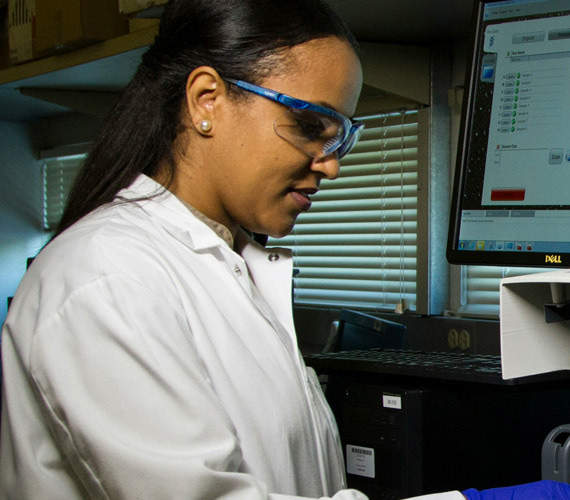If you’re interested in pursuing a career in public health, there are many different paths that you might consider taking. One of the most common job titles held by public health professionals is that of community health worker.
Below, we explore the steps it will take to become a community health worker. We also answer other common questions about what they do, where they work, and how much money you can expect to make in the role.
What is a Community Health Worker?
Community health workers are public health professionals who work to promote health within the communities that they serve. While some community health workers are volunteers, the majority of CHWs are paid for their work.
They are typically associated with a local health care system within the community that they serve. According to the National Institutes of Health (NIH), community health workers will typically “share ethnicity, language, socioeconomic status, and life experiences with the community members they serve.”
Community health workers can also go by other job titles, including:
- Community Health Advisors
- Lay Health Advocates
- Promotoras
- Outreach Educators
- Community Health Representatives
- Peer Health Promoters
- Peer Health Educators
- And more
What do Community Health Workers do?
Generally speaking, community health workers work to promote positive health outcomes within the communities that they serve, typically by helping community members change their habits in order to adopt healthier habits. Some services commonly provided by community health workers include:
- Translation and interpretation services
- Culturally-sensitive health education
- Informal health counseling (for example about nutrition and exercise)
- Advocate for the community’s overall health needs
- Direct health monitoring (for example blood pressure, vision, and hearing screenings)
- Helping individuals and families understand the risk factors associated with certain illnesses (for example, heart disease and diabetes)
- Tracking an individual’s progress as they work toward their health goals
- Organizing events and workshops dedicated to health education
- And more
Where do Community Health Workers Work?
Community health workers can work in a variety of different settings, including hospitals, health care facilities, clinics, government agencies, nonprofit organizations, and more. Wherever they work, it’s important that the facility be located within the community that the CHW serves, as this will allow them to best address the needs of the community.
How Much do Community Health Workers Make?
According to Salary.com, community health workers can expect to earn an average salary of approximately $38,000 per year. As CHWs gain experience, complete additional training, and move into more senior positions (including management positions), this salary will rise. It is not uncommon for community health workers to make upwards of $50,000 per year as they continue to advance in their career.
Location is also an important factor influencing pay. In Boston, Massachusetts, community health workers earn an average of roughly $44,000 per year, or more than $6,000 above the national average.
Steps to Become a Community Health Worker
1. Earn a Related Bachelor’s Degree
While it may be possible to become a community health worker with just a high school diploma, employers increasingly only consider applicants who have earned at least a bachelor’s degree. With this in mind, if you are interested in pursuing a career as a community health worker (or any other public health career) it is generally recommended that you earn a bachelor’s degree that is related to the field.
A bachelor’s degree in public health aligns very closely with the role of community health worker, and will prepare you for many of the duties that would be expected of you on the job. Other health-focused programs, such as biology and nursing, can also be a good choice.
As you evaluate programs, bear in mind that hands-on training is important. As such, you’ll want to select a program that offers plenty of internship opportunities where you can put your education to work.
2. Complete on-the-job Training
Armed with your bachelor’s degree, you should find it possible to land an entry-level position as a community health worker.
During the first few weeks of employment, you’ll receive valuable on-the-job training that will supplement your existing education and prepare you for the role. Importantly, this training will inform you about the unique health challenges and opportunities in the community that you are serving. While the specific training period will vary from employer to employer, it will commonly last for approximately 100-120 hours, or roughly two and a half to three weeks.
3. Apply for Certification
Generally speaking, there are no certification or licensing requirements to work as a community health worker.
That being said, some states do offer voluntary certification for community health workers. In those states, some employers will require certification, and even when it is not required, becoming certified can help you stand out from other applicants.
In Massachusetts, for example, you can apply for voluntary certification as a community health workers once you have met the following requirements:
- Completed the required 4,000 hours of work experience (the Work Experience Pathway)
- Completed the required 2,000 hours of work experience and obtained certification from a Board Approved Training Program (the Combined Training and Work Experience Pathway)
4. Consider Advancement
After you have gained some experience in the field, it can be a good idea to begin thinking about career advancement. Ask yourself: Where do you see yourself in the coming years? What role do you hope to be in? What kind of work do you want to be doing? Do you want to specialize in a particular area of public health?
Depending on your answers to these questions, you might find that career advancement will be easier if you were to complete additional education—for example, by earning an advanced degree like a master of public health (MPH).
An Opportunity to Affect Real Change
By becoming a community health worker, you will have the opportunity to affect real change by improving health outcomes for the community you serve. This, paired with a competitive salary, burgeoning job demand, and a variety of paths for potential advancement make this career worth considering if you are interested in the field of public health.




